Filter by

Processing inaccurate information : theoretical and applied perspectives from…
"Our lives revolve around the acquisition of information. Sometimes the information we acquire--from other people, from books, or from the media--is wrong. Studies show that people rely on such misinformation, sometimes even when they are aware that the information is inaccurate or invalid. And yet investigations of learning and knowledge acquisition largely ignore encounters with this sort of …
- Edition
- -
- ISBN/ISSN
- 9780262325646
- Collation
- 1 online resource (x, 467 pages) :illustrations
- Series Title
- -
- Call Number
- -
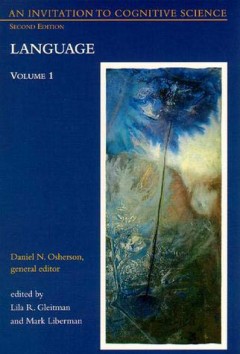
An Invitation to Cognitive Science, Volume 1 : Language
An Invitation to Cognitive Science provides a point of entry into the vast realm of cognitive science, offering selected examples of issues and theories from many of its subfields. All of the volumes in the second edition contain substantially revised and as well as entirely new chapters. Rather than surveying theories and data in the manner characteristic of many introductory textbooks in t…
- Edition
- -
- ISBN/ISSN
- 9780262273916
- Collation
- -
- Series Title
- -
- Call Number
- 153 INV
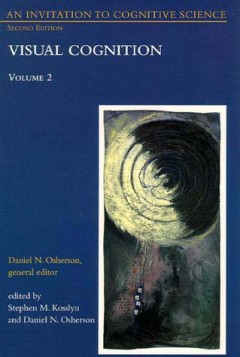
An invitation to cognitive science Volume 2 : Visual Cognition
An Invitation to Cognitive Science provides a point of entry into the vast realm of cognitive science, offering selected examples of issues and theories from many of its subfields. All of the volumes in the second edition contain substantially revised and as well as entirely new chapters.Rather than surveying theories and data in the manner characteristic of many introductory textbooks in the f…
- Edition
- Edisi kedua
- ISBN/ISSN
- 0585053758
- Collation
- 1 online resource : illustrations
- Series Title
- -
- Call Number
- 153 INV

Action Science: Foundations of an Emerging Discipline
"An overview of today's diverse theoretical and methodological approaches to action and the relationship of action and cognition."--Provided by publisher.OCLC-licensed vendor bibliographic record.
- Edition
- -
- ISBN/ISSN
- 0262312972
- Collation
- 1 online resource (xi, 450 pages, 5 unnumbered pages of plates) :illustrations (some color)
- Series Title
- -
- Call Number
- -

Sensorimotor Cognition and Natural Language Syntax
A proposal that the syntactic structure of a sentence reporting a concrete episode in the world can be interpreted as a description of the sensorimotor processes involved in experiencing that episode.OCLC-licensed vendor bibliographic record.
- Edition
- -
- ISBN/ISSN
- 1283707527
- Collation
- 1 online resource (xi, 392 pages) :illustrations
- Series Title
- -
- Call Number
- -
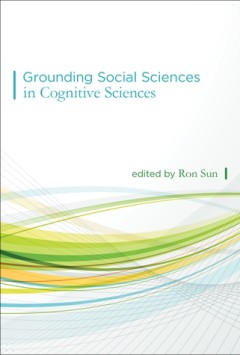
Grounding Social Sciences in Cognitive Sciences
Exploration of a new integrative intellectual enterprise: the cognitive social sciences.OCLC-licensed vendor bibliographic record.
- Edition
- -
- ISBN/ISSN
- 9780262305402
- Collation
- 1 online resource (ix, 455 pages) :illustrations
- Series Title
- -
- Call Number
- -
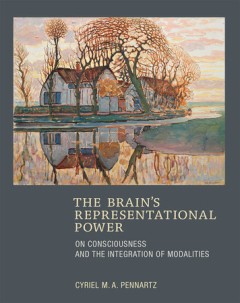
The Brain's Representational Power: On Consciousness and the Integration of M…
Although science has made considerable progress in discovering the neural basis of cognition, how consciousness arises remains elusive. In this book, Pennartz analyzes which aspects of conscious experience can be peeled away to access its core: the relationship between brain processes and the qualitative nature of consciousness. Pennartz traces the problem back to its historical foundations and…
- Edition
- -
- ISBN/ISSN
- 9780262330121
- Collation
- 1 online resource (xi, 382 pages, 12 unnumbered pages of plates) :illustrations (some color)
- Series Title
- -
- Call Number
- -

Microcognition: Philosophy, Cognitive Science, and Parallel Distributed Proce…
Parallel distributed processing is transforming the field of cognitive science. Microcognition provides a clear, readable guide to this emerging paradigm from a cognitive philosopher's point of view. It explains and explores the biological basis of PDP, its psychological importance, and its philosophical relevance.
- Edition
- 1
- ISBN/ISSN
- 9780262270441
- Collation
- -
- Series Title
- -
- Call Number
- -
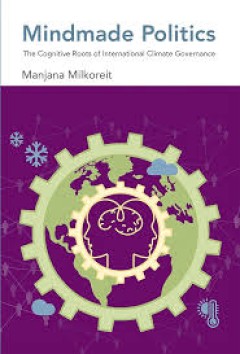
Mindmade politics the cognitive roots of international climate governance
How integrating cognitive theories and international relations scholarship can yield valuable insights into the effectiveness of climate negotiations. Mindmade Politics takes a novel, interdisciplinary approach to understanding the complex and contentious dynamics of global climate politics. Manjana Milkoreit argues that integrating cognitive theories and international relations scholarship can…
- Edition
- -
- ISBN/ISSN
- 9780262340588
- Collation
- 1 online resource (352 pages)
- Series Title
- -
- Call Number
- -
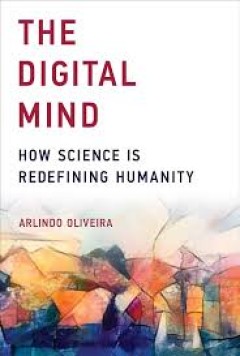
The Digital Mind: How Science Is Redefining Humanity
How developments in science and technology may enable the emergence of purely digital minds -- intelligent machines equal to or greater in power than the human brain.OCLC-licensed vendor bibliographic record.
- Edition
- -
- ISBN/ISSN
- 9780262338394
- Collation
- 1 online resource (xxii, 317 pages) :illustrations.
- Series Title
- -
- Call Number
- -
 Computer Science, Information & General Works
Computer Science, Information & General Works  Philosophy & Psychology
Philosophy & Psychology  Religion
Religion  Social Sciences
Social Sciences  Language
Language  Pure Science
Pure Science  Applied Sciences
Applied Sciences  Art & Recreation
Art & Recreation  Literature
Literature  History & Geography
History & Geography